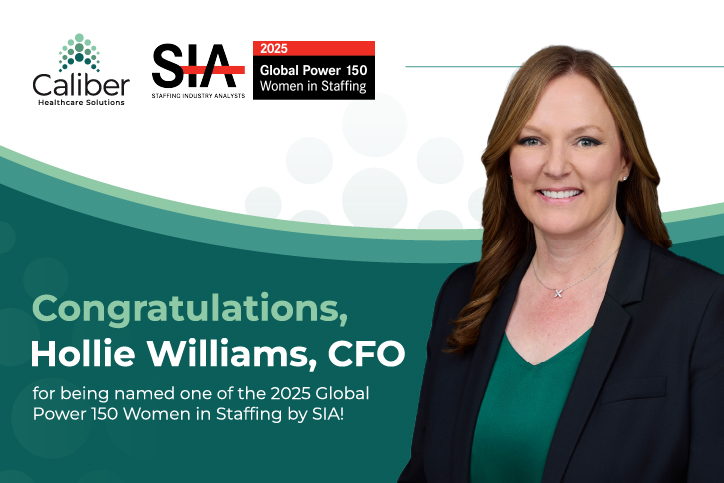
The United States is experiencing a critical shortage of Cardiologists, initially driven by burnout, declining reimbursements, and rising administrative burdens. The growing shortage has been further exacerbated by the long-term effects and heart complications resulting from COVID-19.
This shortage extends beyond general cardiology, affecting subspecialties like cardiac imaging and electrophysiology. Rural areas have long struggled to attract and retain Cardiologists, but the increasing prevalence of conditions like atrial fibrillation (AFib) has intensified the demand for skilled electrophysiologists. This increase creates a significant imbalance between the availability of trained physicians and the rising number of patients requiring care across the country, which also impacts the primary care sector. At Caliber, we recognize the urgent need to strategically address these challenges and support healthcare facilities with quality locum tenens solutions.
As cardiovascular disease remains the leading cause of death globally, the demand for cardiology services far exceeds the available supply of specialists. This imbalance not only threatens the availability of treatment but also puts immense strain on existing Cardiologists, who struggle to provide quality care to a rapidly growing patient population. General Cardiologists are in especially short supply and the growing shortage is most acutely felt in remote areas, where access to specialized healthcare is often limited.
The implications of this shortage extend beyond care delivery. It affects the timeliness and quality of treatment for conditions such as heart failure, sleep apnea, acute coronary syndromes, and congenital heart diseases. The American College of Cardiology (ACC) suggests extending senior Cardiologists' careers through creative modified scheduling and providing greater overall schedule flexibility for all medical staff. Locum tenens offers these solutions, encouraging individually tailored schedules and the freedom to practice in diverse environments, filling temporary schedule gaps for other physicians as needed.
There is a predicted deficit of 120,000 Cardiologists by 2030. This deficit is driven by an aging population with higher cardiovascular disease rates, the complexity of treating conditions like ischemic and valvular heart diseases, and an insufficient number of new Cardiologists entering the field compared to those retiring.
There are both supply and demand-driven factors contributing to this critical issue.
Healthgrades' findings highlight a rapidly growing shortage of specialized Cardiologists, driven by both supply and demand factors. Aging Baby Boomers with increasing demand for cardiovascular care have intensified this shortage, which is particularly severe in rural areas with limited access to advanced care. Additionally, the insufficient number of General Cardiologists and the need for more robust cardiovascular training programs contribute significantly to this crisis.
To address these challenges, healthcare staffing agencies like Caliber play a crucial role. By providing flexible, rewarding practice opportunities and leveraging their network, we can help bridge the gap in care, ensuring that both rural and urban healthcare systems can meet the demand for cardiology services.
Healthcare staffing agencies, particularly those with a forward-thinking, transparent approach, are uniquely positioned to address the Cardiologist shortage with innovative solutions. These agencies facilitate critical connections between healthcare systems and qualified Cardiologists, sourcing top-tier talent across various cardiac specialties, including general cardiology, acute coronary syndromes, valvular and congenital heart disease, and more.
Additionally, staffing agencies play a vital role in extending cardiovascular care to remote areas, where the shortage is most severe. By offering temporary or locum tenens positions, they can leverage talent on a case-by-case basis to ensure that underserved communities gain improved access to essential cardiac care services. This mitigates the overall impact of staffing shortages and enhances health outcomes.
We recognize that addressing the Cardiologist shortage requires more than just filling positions; it demands finding the right fit for both healthcare providers and health systems. Our provider-centric approach prioritizes the needs and preferences of locum tenens Cardiologists, offering them flexibility and opportunities that align with their professional and personal goals.
This strategy empowers Cardiologists by providing limitless career paths within our top-tier talent network. Our specialty-focused recruiting teams understand the intricacies of the cardiovascular field, ensuring that each placement supports both high-quality patient care and the Cardiologist’s career development. In this way, Caliber bridges the gap between the rapidly growing demand for cardiac care and the supply of highly skilled Cardiologists.
Our commitment to building long-term, mutually beneficial partnerships has positioned us as the leading provider-centric locum tenens staffing agency in the industry. By focusing on the well-being and career development of Cardiologists, we contribute a sustainable solution to the Cardiologist shortage, ultimately advancing the goal of improving patient care across health systems.
Caliber empowers the cardiovascular workforce by providing flexible opportunities that cater to various lifestyle goals and professional interests. In line with the ACC's suggestion to extend senior Cardiologists' careers through flexible scheduling, we offer customized locum tenens solutions that accommodate the diverse needs of Cardiologists, especially those seeking a better work-life balance or wishing to explore different clinical environments.
Through our provider-centric approach and our commitment to offering flexible opportunities, Caliber is doing our part to reduce staffing shortages. By empowering Cardiologists with professionally satisfying and financially rewarding practice opportunities, we ensure that healthcare systems have access to the talent they need and patients receive the exceptional cardiac care they deserve.
Ready to explore locum tenens cardiology jobs with Caliber? Contact a recruiter today.

Posted on
October 9, 2025
Caliber is proud to announce that our Chief Financial Officer, Hollie Williams, has been named to the Staffing Industry Analysts (SIA) 2025 Global Power 150 Women in Staffing list. This prestigious recognition honors women who are shaping the future of the staffing industry through innovation, leadership, and measurable impact.

Posted on
August 14, 2025
The OB/GYN workforce is at a pivotal moment. Demand is growing, especially in underserved regions. Meanwhile, retirements, burnout, and legislative pressure continue to shrink the supply of practicing physicians.

Posted on
August 10, 2025
The U.S. is experiencing a growing OB/GYN shortage that’s reshaping access to care for millions of women. In rural and urban communities alike, hospitals are closing labor and delivery units.

Posted on
October 9, 2025
Caliber is proud to announce that our Chief Financial Officer, Hollie Williams, has been named to the Staffing Industry Analysts (SIA) 2025 Global Power 150 Women in Staffing list. This prestigious recognition honors women who are shaping the future of the staffing industry through innovation, leadership, and measurable impact.

Posted on
October 2, 2025
We are proud to announce Allie Taylor, Corporate Counsel at Caliber Healthcare Solutions, has been recognized as a finalist for D CEO’s 2025 Corporate Counsel Award. Now in its 16th year, this prestigious program honors the top in-house attorneys across North Texas—an achievement that speaks volumes about Allie’s remarkable impact in the legal field.

Posted on
August 10, 2025
At Caliber, we believe Locum Tenens Week should be more than a weeklong celebration; it should be a spotlight on the long-term difference providers make every day. As a provider-centric organization, we know that when physicians and APPs are supported, their impact doesn’t just fill a gap, it transforms care for entire communities.This year’s NALTO theme, “Temporary Providers, Permanent Impact,” resonates deeply with us. Because while locum assignments are sometimes measured in weeks or months, the care delivered, and the trust built can span years and touch thousands of lives.

Posted on
July 4, 2024
The field of cardiology is facing significant challenges and opportunities in today's healthcare landscape. As the demand for cardiovascular care continues to rise, the Cardiologist job outlook remains robust,

Posted on
July 4, 2024
You already know how permanent positions work, but let's explore how locum tenens works for Cardiologists. In an evolving healthcare landscape, Cardiologists are increasingly embracing locum tenens opportunities for a variety of reasons

Posted on
July 4, 2024
As the most provider-centric healthcare staffing agency, Caliber is committed to empowering Cardiologists with practice opportunities that are both professionally satisfying and financially rewarding.

Posted on
August 14, 2025
The OB/GYN workforce is at a pivotal moment. Demand is growing, especially in underserved regions. Meanwhile, retirements, burnout, and legislative pressure continue to shrink the supply of practicing physicians.

Posted on
August 12, 2025
Physicians in 2025 are facing rising workloads, shifting care team structures, and evolving career expectations. See the 4 biggest trends shaping the profession—and how locum tenens offers flexibility, balance, and control.

Posted on
August 12, 2025
For OB/GYNs, compensation is only one part of a complex equation that includes work-life balance, autonomy, and the ability to practice medicine on your own terms.